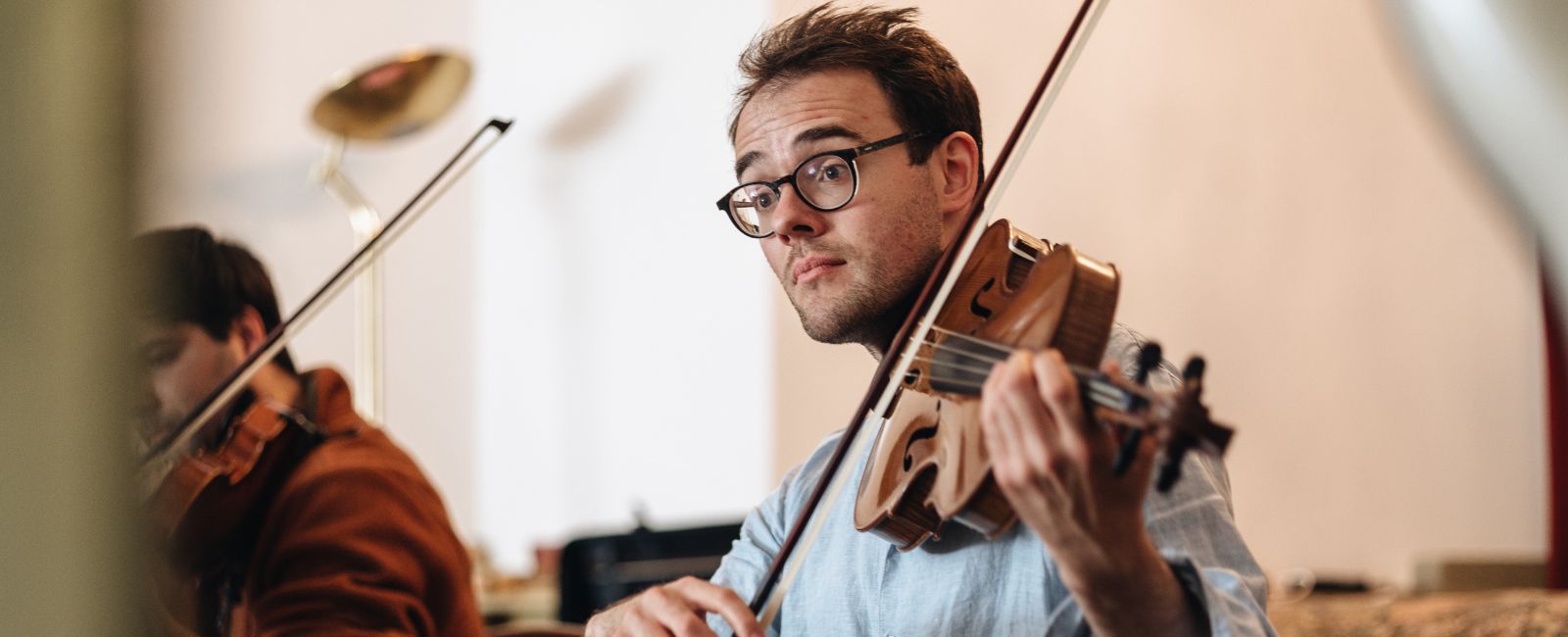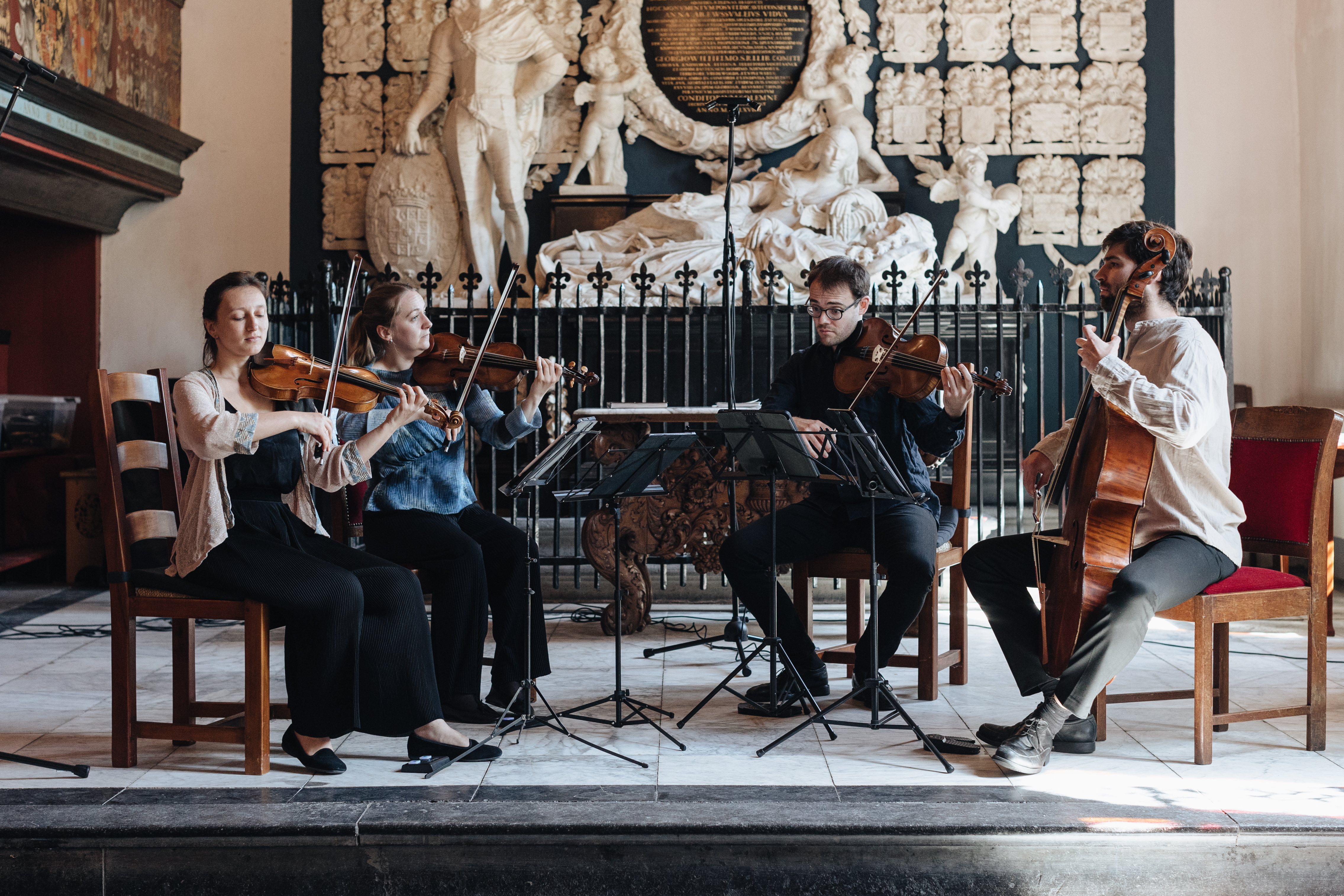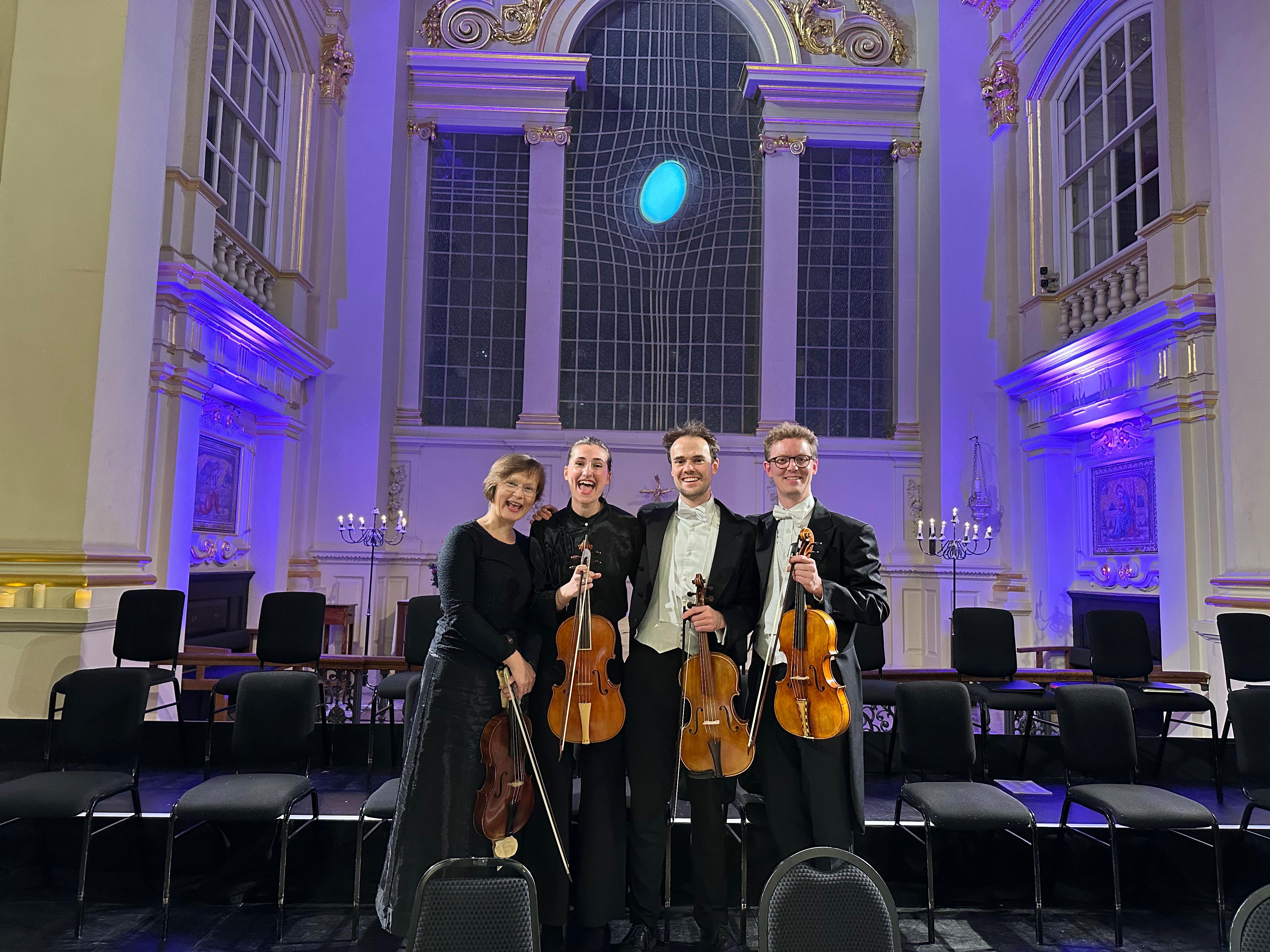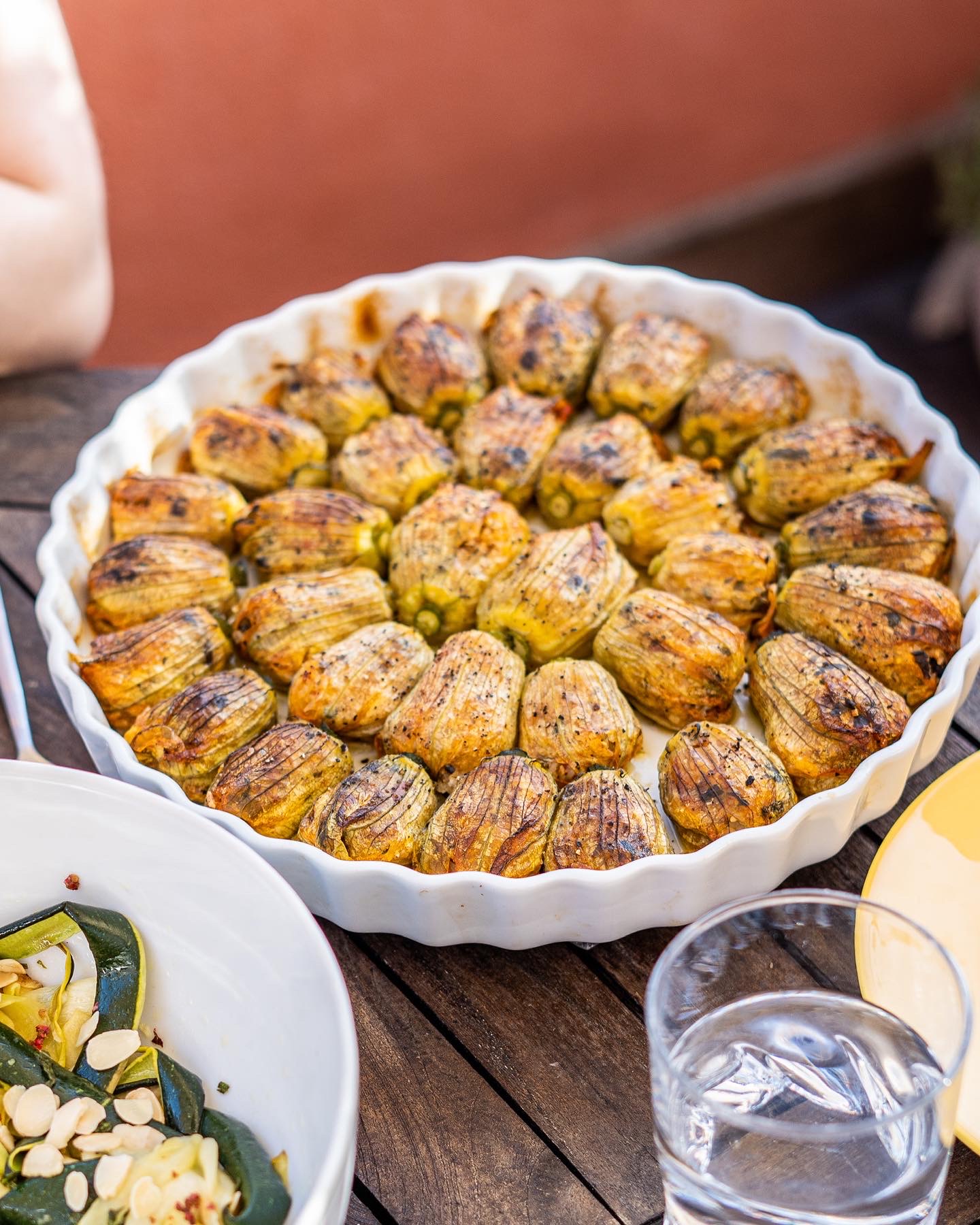5 Jun 2025
Meet violist Oscar Holch: member of both the English Baroque Soloists and Orchestre Révolutionnaire et Romantique

Can you share your earliest memory of classical music and how it influenced your path toward becoming a professional musician?
My earliest memory of classical music was attending chamber music concerts at Lotherton Hall, a country house in West Yorkshire near where I grew up. Due to my father’s notoriously bad timekeeping we would always arrive at least 10 minutes late, but since my sister and I were the youngest there by quite a long way, we were often invited to sit at the front on a very regal rug so we could have a good view of the musicians. I remember enjoying being so close to them and seeing them interact and I think that must have instilled in me a sense of wanting to do this exciting activity. After each concert as an extra bonus, we were served very decadent cakes so maybe that also influenced me…
You were selected as a Monteverdi Apprentice—what did that experience mean to you, and how did it shape your artistic development and career direction?
I was extremely excited when I was selected as an apprentice, as I had long admired the artistic output and legacy of the entire MCO family since my youth, in particular the Bach Cantata Pilgrimage Series. Having not been able to access historically informed performance (HIP) at my conservatoire, I was so grateful for the opportunity to delve into the world of HIP which now makes up a significant and important part of my career. One of the most valuable aspects of the scheme was meeting my fellow apprentices – it was inspiring to meet such a wonderful group of musicians from all around Europe who all shared such a passion and commitment for music making and it was so valuable to exchange different ideas and perspectives. Through the scheme I formed some very close friendships and several of us came together to form Parnassus Ensemble, an early music collective that brings together musicians from both the scheme and beyond.

Parnassus Ensemble performing in Midwolde, Holland, May 2025. The group is comprised of former MCO Apprentices Xenia Gogu, Hatty Haynes, Oscar Holch, and Víctor García García (left to right).
You’ve conducted early music ensembles and also worked with the MCO as an assistant. What was that experience like, and how does working with the MCO compare to other ensembles you've collaborated with?
It was a huge honour and incredibly inspiring to work as an assistant to Sir John Eliot Gardiner and the MCO on their European Tour of Bach’s B Minor Mass in 2023. I learnt an incredible amount from the whole experience, and it was a fantastic opportunity to delve into such a monumental piece of music. I also was extremely fortunate to work with Dinis Sousa and the ORR on their Beethoven Symphonic Cycle in 2024 – it was such an exciting project to explore all the symphonies and follow Beethoven‘s symphonic development.
Being an assistant can be a complex role with many different facets, but I really appreciated the willingness, generosity, and encouragement of the musicians of the MCO and it was a real privilege to work with them, exchange ideas and to see so many inspiring performances.
Focusing on your role as a violist, what does your preparation process typically look like to help you get into the right headspace before a performance?
My preparation as a violist begins similarly to when I prepare as a conductor. I like to learn a piece from the full score, so I am fully aware of how the viola part interacts with the other voices and what distinct and varying roles it has throughout the piece. I also like to analyse the harmony and structure of the work as that provides a clarity and informs me on how to approach the piece with my instrument. I find the rehearsal process very important not only to explore the work, set certain characters and articulations and build an interpretation, but also as a space in which to propose through one’s playing as well as reacting to impulses from musicians throughout the orchestra and the conductor, to create a catalogue of shared experiences that can then be drawn upon in the performance and hopefully set the scene for spontaneity and reactive listening.

The viola section of the English Baroque Soloists at St Martin-in-the-Fields during the MCO Charpentier & Bach Tour, December 2024.
How do you approach the balance between historical performance practice and creative interpretation when working with early music repertoire?
I personally see the two as intertwined and complementary concepts and not binary choices. For me, HIP provides a framework in which to explore and experiment within. As historical informed musicians we aim to inhabit as best as we can the mindset of the performers of the time and immerse ourselves in the music language of each work and through this process, unlock a creativity that both looks to the past and speaks with a powerful conviction for today‘s world and society.
Looking back on your time with the MCO, is there a particular tour, piece, or project that stands out as especially memorable or meaningful?
The B Minor Mass Tour in 2023 will stay with me for a long time. It was an amazing experience to hear this piece 8 times throughout Europe and to witness each performance reach new heights and depth. The most memorable concert was in the Elbphilharmonie in Hamburg, as I was sat in front of a young couple who after each movement would whisper with such enthusiasm to each other ‘wow’, along with an elderly gentleman who sang along to the whole piece very quietly under his breath. I still remember the feeling of total and collective consolation the audience experienced from the final Dona nobis pacem.
When you’re not performing or rehearsing, what do you enjoy doing in your downtime? Are there any hobbies or interests outside of music that help you stay balanced?
I am very fortunate that I travel a lot for work and get to see many interesting places. I enjoy wandering through new cities and exploring local restaurants and different cuisines (I am slowly building up a database of recommendations). When I am home, I love to cook and host friends for elaborate dinners that often take way too long to prepare but are hopefully worth it in the end…

Stuffed Courgette Flowers prepared by Oscar in Aix-en-Provence, July 2023.
Finally, what are you most looking forward to this season with the MCO? Any projects or performances that feel particularly exciting?
I am really looking forward to working with Masaaki Suzuki for the first time in June and experiencing a new perspective on performing Bach, as well as the project with Pablo Heras-Casado in September performing together with many inspiring friends and colleagues in the ORR.